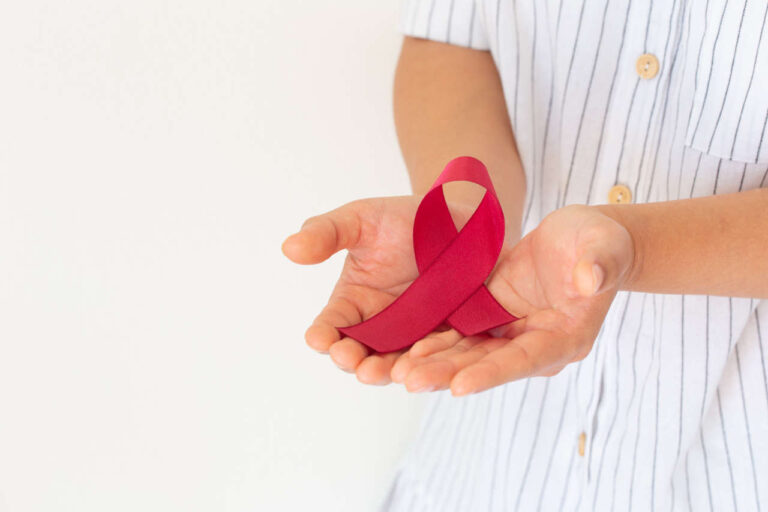
What Is Olaparib?
Olaparib (pronounced [oh LAP a rib]) is also known by the brand name, Lynparza. It is an antineoplastic (anticancer) drug that belongs to a class called PARP inhibitors, and it may be prescribed alone or in combination with other anticancer drugs like bevacizumab (Avastin). Lynparza is a type of chemotherapy.
Speak to a Chemo Specialist
What Is Chemotherapy?
Chemotherapy is a cancer treatment in which certain drugs are used to kill cancerous cells. These drugs are usually cytotoxic chemical substances that are toxic to the cells, restrict their growth, prevent their division, and ultimately kill the cells.
Protection From Chemotherapy
Olaparib is considered to be a hazardous agent, and normally, these pills are covered by a thin coating of material. If this coating is damaged, removed, melted, or if the pill is broken into pieces, the chemical inside the pill can cause damage to your skin if you touch it. Therefore, it is important to take appropriate precautions for receiving, handling, storing, administering, and disposing of this medication. Wear gloves if touching this medication, or avoid touching it entirely by using the cap of the bottle to scoop up the tablet and put it directly into the mouth.
How Is Lynparza Used?
Lynparza has been approved by the Food and Drug Administration (FDA) to treat a wide variety of cancers, including breast, ovarian, pancreatic, prostate, and other cancers. It can be prescribed in combination with other chemotherapy agents, depending on the severity and type of cancer.
Available Formulations
Lynparza is only available in the form of tablets or capsules and must be administered orally. The tablets are only available in two strengths: 100 mg and 150 mg. The capsules, on the other hand, are only available in 50 mg strength. The tablets are elliptical or oval-shaped. The 100 mg tablet is yellow with “OP 100” imprinted on one side. The 150 mg tablet is green with “OP 150” imprinted on one side. The capsules are white and marked with “Olaparib 50 mg,” followed by a logo.
Directions for Use
Lynparza may be taken with or without food. When taking the pill, swallow it whole; do not break, crush, chew, open, or allow it to be dissolved in your mouth. Do not substitute capsules for tablets without consulting with your physician. Lynparza is typically dosed twice a day, and the dose is dependent on the cancer type and severity. Verify the correct dose and frequency with your provider.
Missed Dose
If you accidentally miss a dose, skip the missed dose and continue with the next scheduled dose. Do not take extra doses to make up for a missed dose.
Storage
Store capsules in a cool, dry place at room temperature and ensure the bottle is tightly closed.
Speak to a Specialist About Copay Assistance
What To Avoid While Taking Lynparza
While on the Lynparza therapy, you must follow some precautions. Always tell your physician about any medications you are already taking. Do not take any drug or medicine (even herbals or over-the-counter medications) without prior consent from your physician or pharmacist, as they may have significant interactions with Lynparza. Avoid grapefruit, grapefruit juice, Seville orange juice, and Seville oranges throughout therapy as they may also interact with this medication.
Pregnancy and Lynparza
Pregnancy status must be checked prior to starting chemotherapy in women of child-bearing age. Females of childbearing age must use effective contraception during treatment and for 6 months after the last dose. Male patients with partners who can become pregnant should use effective contraception during treatment and for 3 months after the last dose. Lynparza may cause fetal harm and is therefore not recommended for women who are breastfeeding during therapy. Breastfeeding should also be avoided for at least 1 month after the last dose.
Side Effects
As with any other medication, you may encounter many side effects while taking Lynparza. A few things to keep in mind are:
- You may not have all the side effects listed below. Many people may experience little to no side effects.
- The severity of side effects may vary from person to person, so don’t compare your side effects with other people’s experiences.
- Most of the side effects will improve when therapy is discontinued.
- These side effects are easily manageable most of the time, either by readjusting the dose of Lynparza or using additional medications to treat the symptoms. Consult with your physician or pharmacist to explore available options.
- Do not hide any symptoms; when you feel any discomfort, do not hesitate to tell your physician or pharmacist about it.
Note: This is not a comprehensive list of all side effects. Talk to your doctor if you have questions.
Some of the most common side effects of Lynparza are:
Lung Problems
Lung complications like pneumonitis may occur. Contact a physician or get emergency medical help right away if you have shortness of breath with or without a fever, cough, trouble breathing, or a fast rate of breathing.
Secondary Malignancies
It is possible that Lynparza can give rise to secondary cancer during treatments. The most common cancers that may occur are called myelodysplastic syndrome (MDS) or acute myeloid leukemia (AML). It is essential to avoid the sun during therapy and use sunscreen while outdoors. If any new lumps or moles appear on the skin, consult your physician immediately.
Cardiac Complications
There is a risk that Lynparza may cause a higher risk for thrombotic events like blood clots, heart attacks, stroke, venous thromboembolism (VTE), or pulmonary embolism (PE). Clots may present as chest pain or pressure, coughing up blood, shortness of breath, swelling, warmth, numbness, change of color or pain in a leg or arm, or trouble speaking or swallowing.
Get Chemotherapy Copay Assistance
Chemotherapy Financial AssistanceAllergic Reaction
Lynparza can cause hypersensitivity reactions that can include rash, dermatitis, and angioedema. Notify your physician or pharmacist immediately of any signs of a rash or allergic reaction, including wheezing; tightness in the chest or throat; hives, blistered or peeling skin; trouble breathing, swallowing, or talking; unusual hoarseness; or swelling of the mouth, face, lips, tongue, or throat.
Urinary Tract Infection (UTI)
A UTI may occur in certain situations. If symptoms like blood in the urine, burning or painful urination, passing a lot of urine, fever, lower abdominal pain, or pelvic pain are present, consult your physician.
Bone Marrow Suppression
It is essential to keep up with regular blood tests, especially the complete blood count test (CBC). The CBC blood test is capable of detecting potential side effects of Lynparza, including leukopenia (low white blood cells level), thrombocytopenia (low platelet count), neutropenia (low white blood cells), and anemia (low red blood cells).
Less severe side effects can include:
- Nausea
- Fatigue, dizziness, tiredness, or weakness
- Vomiting
- Diarrhea
- Constipation
- Common cold symptoms
- Muscle or joint pain
- Nose or throat irritation
- Change in taste
- Abdominal pain
- Loss of appetite or weight loss
Precautions
Unless approved by your physician, Lynparza is generally not recommended in:
- Patients who have an allergy to Lynparza. Allergic reactions can cause a rash over the whole body, shortness of breath, wheezing, dizziness, swelling around the mouth or eyes, fast heart rate, trouble breathing, and sweating. If you have any of these symptoms, stop using Lynparza and call your doctor or get emergency help right away.
- Patients with a history of heart complications, including heart attacks, stroke, venous thromboembolism (VTE), or pulmonary embolism (PE).
- Blood pressure should be monitored continuously throughout therapy.
- Dose reduction or discontinuation of therapy may be warranted if any clots develop.
- Patients with a history of lung disease or if pneumonitis develops. Discontinuation of therapy may be required if pneumonitis is confirmed
Consult a Chemotherapy Specialist
Get Chemotherapy Treatment AssistanceFAQs
Is Lynparza a chemo agent?
Chemo drugs are those that are used in the management of various cancers. Lynparza kills the cancer cells and is therefore a chemo agent. It is recommended as a treatment option for various cancer patients.
How should Lynparza be taken?
Lynparza may be taken with or without food. Swallow it whole; do not break, crush, chew, open, or allow it to be dissolved in your mouth. Do not substitute capsules for tablets without consulting with your physician. Lynparza is typically dosed twice a day, and the dose is dependent on the cancer type and severity.
Is olaparib available as a generic?
Currently, olaparib is not available as a generic. It is only available as the brand, Lynparza.
REFERENCES:
Lynparza.com. 2021. LYNPARZA® (olaparib). [online] Available at: <https://www.lynparza.com/?source=LYN_N_C_308&umedium=cpc&uadpub=google&ucampaign=71700000078823799&ucreative=58700006642606092&uplace=43700060020052295&outcome=dtc&cmpid=1&utm_source=google&utm_medium=cpc&utm_campaign=USA_GO_SEM_B_EX_PAN-TUMOR_BRAND_NAME_ONLY&utm_content=Brand+Name+-+Alone&utm_term=lynparza&gclid=Cj0KCQiA-K2MBhC-ARIsAMtLKRtydZ0UEi3fKnvdZKwekuNBH80ylu14QdaOJSLyzguCPt2zWFHPiUoaAnX-EALw_wcB&gclsrc=aw.ds> [Accessed 10 November 2021].
Lynparza: Uses, dosage, side effects, warnings. Drugs.com. (n.d.). Retrieved November 9, 2021, from https://www.drugs.com/Lynparza.html.
Olaparib. In: Lexi-drugs online [database on the Internet]. Hudson (OH): Lexicomp, Inc.; 2016 [updated 6 Nov 2021; cited 9 Nov 2021]. Available from: http://online.lexi.com
Olaparib. In: In Depth Answers [database on the Internet]. Greenwood Village (CO): IBM Corporation; 2017 [cited 2021 Nov 9]. Available from: www.micromedexsolutions.com.













